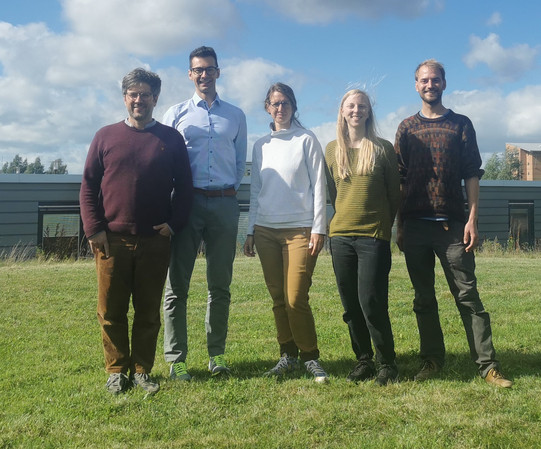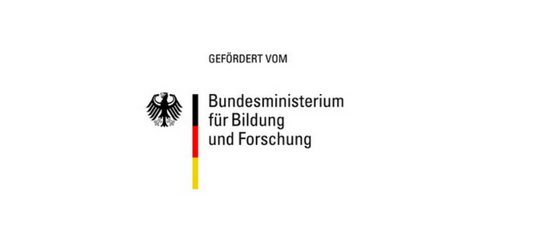Politics of Non-Sustainability
The research project (PONN) investigates the role of national-authoritarian attitudes and aspects of social inequality with regard to a socio-ecological transformation of society.
Against the backdrop of worsening ecological and social problems, the implementation of sustainable policies is being called for by large sections of politics, civil society, science and the public: be it the establishment of sustainable mobility systems, changes in the agricultural sector or the transformation of the energy system. However, the various fields of socio-ecological transformation are dependent on societal and political framework conditions that extend far beyond their respective thematic fields and thereby determine the chances of success of political adoption and practical implementation.
In the context of the research project "Policies of Non-Sustainability" (PONN), this is to be set in the context of two recent developments between which there seems to be a connection: the rise of national-authoritarian populist movements and parties and the emergence of new social disparities. Our pilot study asks about the implications and consequences for a transformation of society towards sustainability.
The one-year joint project is designed as a meta-study and is funded by the German Federal Ministry of Education and Research (BMBF). The implementation, at the European University Flensburg (EUF) and the Technical University Dortmund, is divided into three work packages in order to both theoretically elaborate and empirically illuminate the nexus described above.
Work package 1: Literature study
Work package 1 will be conducted by the Norbert Elias Center (NEC) at the EUF.
The aim is a systematic evaluation of the relevant and current, predominantly German-language, literature on national-authoritarian populism in the context of entanglements with policies of (non-)sustainability. Special consideration will be given to the emergence of new social disparities, and how and whether this entanglement embeds itself in new social disparities. In addition to a comparative analysis of different research perspectives and results, central desiderata in this relatively young field of investigation are to be identified in order to determine further research needs.
Work package 2: Secondary data analysis
Work package 2 is carried out by the Institute of Sociology at the TU Dortmund University.
The aim is to find out, on the basis of representative data, whether correlation patterns can be identified between climate protection and environmental attitudes on the one hand and nationalist-populist orientations on the other. In addition, we will examine how social situation characteristics and attitudes toward social inequality relate to the presumed connection. To this end, three secondary data sets (ESS, GESIS panel, SOEP) will be consulted and used to shed light on the initial question.
Work package 3: Preparation of results for political decision-makers and the interested public
Work package 3 is mainly carried out by the NEC in cooperation with the Institute of Sociology at the TU Dortmund University.
The aim of the project is not only to enrich the scientific discourse on the described complex of phenomena, but also to bring it to a broader public. Therefore, the results of the pilot study will be bundled in a separate publication - with the claim to make the contents accessible to a non-scientific or general public as well. In addition, suggestions are discussed on how to deal socially and politically with the connection between national-authoritarian populism and policies of non-sustainability. This handout will be presented to politicians and the public in a transfer event in Berlin in May 2021.
The first results of the project were published in the form of a handout for the public. The brochure "At the expense of the people! Right-wing populist positions on climate and environment" can be downloaded here.
A three-part podcast on policies of non-sustainability is here and on all relevant platforms freely available.
Within the framework of the agenda process for social-ecological research (SÖF) 2018.
Project Duration
06/2020 to 05/2021 (13 months)
Publications
Sommer, B./ Schad, M./ Kadelke, P./ Humpert, F./ Möstl, C. (2022): Rechtspopulismus vs. Klimaschutz? Positionen, Einstellungen, Erklärungsansätze. München: oekom Verlag. [Publisher Information]
Sommer, B./ Schad, M./ Möstl, C./ Humpert, F./ Kadelke, P. (2021): Rechtspopulismus als Desiderat der sozial-ökologischen Transformationsforschung? Themen und Perspektiven, In: GAIA - Ecological Perspectives for Science and Society 30 (1), S. 62-64. [online available]
Humpert, F./ Kadelke, P./ Möstl, C./ Schad, M./ Sommer, B. (2021): Auf Kosten des Volkes. Rechtspopulistische Positionen zu Klima und Umwelt. Handreichung zu den Projektergebnissen PONN. [online available]

Project Management
Dr. Miriam Schad, TU Dortmund
Dr. Bernd Sommer, Europa-Universität Flensburg
Project Team
Philipp Kadelke, M.A., TU Dortmund
Kira Buschkämper, TU Dortmund
Franziska Humpert, Europa-Universität Flensburg
Christian Möstl, Europa-Universität Flensburg
Lilly Gerlach, Europa-Universität Flensburg

![[Translate to English:] [Translate to English:]](/storages/zentraler_bilderpool/_processed_/b/9/csm_Spektralringe_225cc86301.jpg)
![[Translate to English:] [Translate to English:]](/storages/zentraler_bilderpool/_processed_/9/c/csm_Tisch-Laptops_ab150b7175.jpg)
